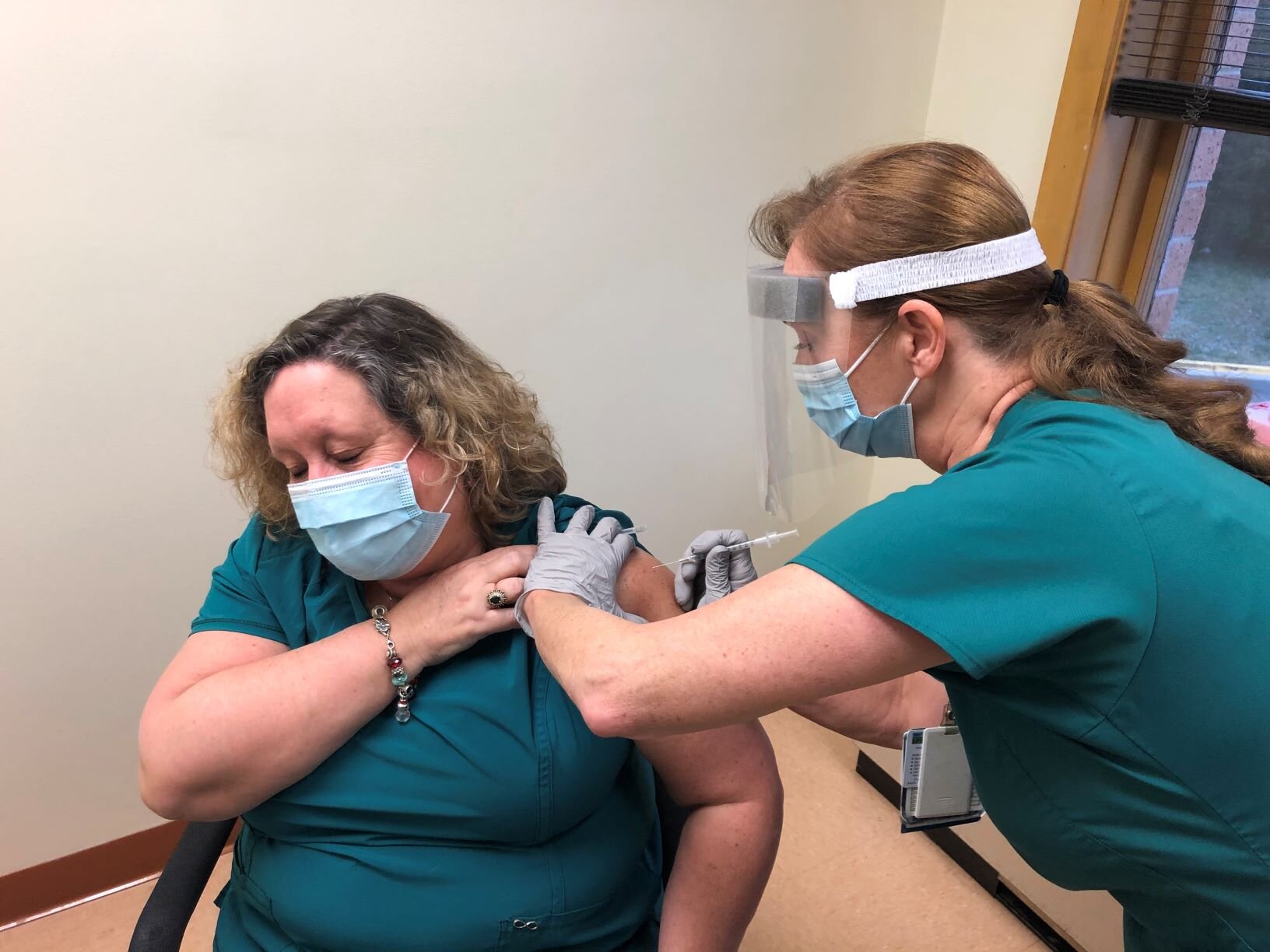Cervical Health: Make A Difference
What You Can Do To Raise Awareness About How Women Can Protect Themselves From HPV And Cervical Cancer
Cervical Health Awareness Month (January) is a chance to raise awareness about how women can protect themselves from HPV (human papillomavirus) and cervical cancer. HPV is a very common infection that spreads through sexual activity, and it causes almost all cases of cervical cancer.
About 79 million Americans currently have HPV. Many people with HPV don’t know they are infected. And each year, more than 11,000 women in the United States get cervical cancer.
The good news?
The HPV vaccine (shots) can prevent HPV.
Cervical cancer can often be prevented with regular screening tests and follow-up care.
Cervical cancer screenings can help detect abnormal (changed) cells early before they turn into cancer. Most deaths from cervical cancer could be prevented by regular screenings and follow-up care.
How can Cervical Health Awareness Month make a difference?
We can use this opportunity to spread the word about important steps women can take to stay healthy.
Here are just a few ideas:
Encourage women to get their well-woman visit this year.
Let women know that most insurance plans must cover well-woman visits and cervical cancer screening. This means that, depending on their insurance, women can get these services at no cost to them.
Talk to parents about how important it is for their pre-teens to get the HPV vaccine. Both boys and girls need the vaccine.
How can I help spread the word?
We’ve made it easier for you to make a difference. This toolkit is full of ideas to help you take action today. For example:
Add information about HPV and cervical cancer prevention to your newsletter.
Host a community event to raise awareness about cervical health.
Get the Word Out
Sample Announcement for Newsletter, Listserv, or Media Release
Sample Tweets
January is #CervicalHealth Awareness Month! Spread the word and get involved: http://bit.ly/1OsOhjD #CervicalHealthMonth
Did you know? #HPV is the most common sexually transmitted infection. Learn more: https://bit.ly/2gCyxk8
#HPV affects men, too. Find out how you can protect yourself and your partner: http://1.usa.gov/Y1tCN
Both boys and girls need the #HPV vaccine at age 11 or 12. Ask your child’s doctor about it at your next visit! http://1.usa.gov/1Mldqvi #CervicalHealthMonth
Find out what to expect during a pelvic exam: http://mayocl.in/S333my
Help prevent #CervicalCancer by getting regular screening tests. For more information: http://1.usa.gov/uclfGR #CervicalHealthMonth
Web Badge
Get Involved
Take action to raise awareness about cervical health.
Partner with other local groups, like cancer networks and community health clinics, to host an education event.
Encourage healthcare providers to offer free or reduced-cost screening days.
Start a local National Cervical Cancer Coalition (NCCC) chapter in your community.
Recruit local bands to perform a benefit concert to raise money for cervical cancer prevention in your community.
Adapted from the National Cervical Cancer Coalition (NCCC).
Contact the National Cervical Cancer Coalition at nccc@ashasexualhealth.org for more information and materials.
Share These Resources
Health Topics
Healthy People Topic Area
Personal Health Tools
Other Resources
Find More Information
The National Cervical Cancer Coalition
Cervical Health Awareness Month SponsorHuman Papillomavirus (HPV)
Centers for Disease Control and PreventionGenital HPV Infection Fact Sheet
Centers for Disease Control and PreventionCervical Cancer Prevention
National Cancer InstituteCervical Cancer Fact Sheet
Office on Women’s HealthHPV Fact Sheet
Office on Women’s HealthPap Test Fact Sheet
Office on Women’s HealthHPV and Cervical Cancer
National Cervical Cancer CoalitionHPV Vaccine Fact Sheet
U.S. Department of Health and Human Services







